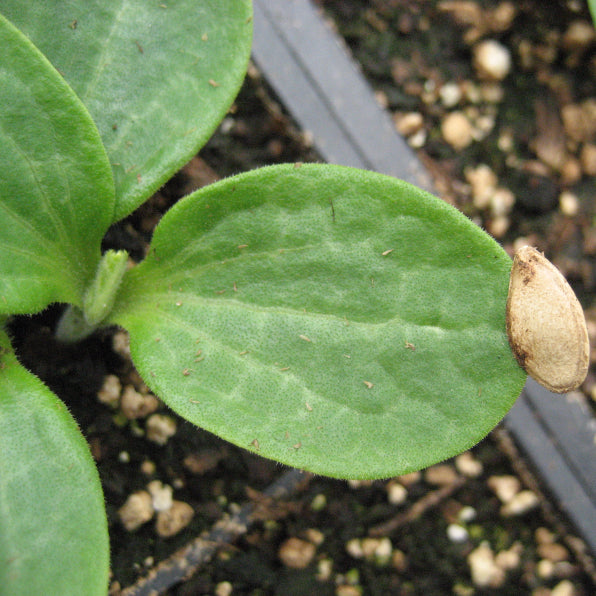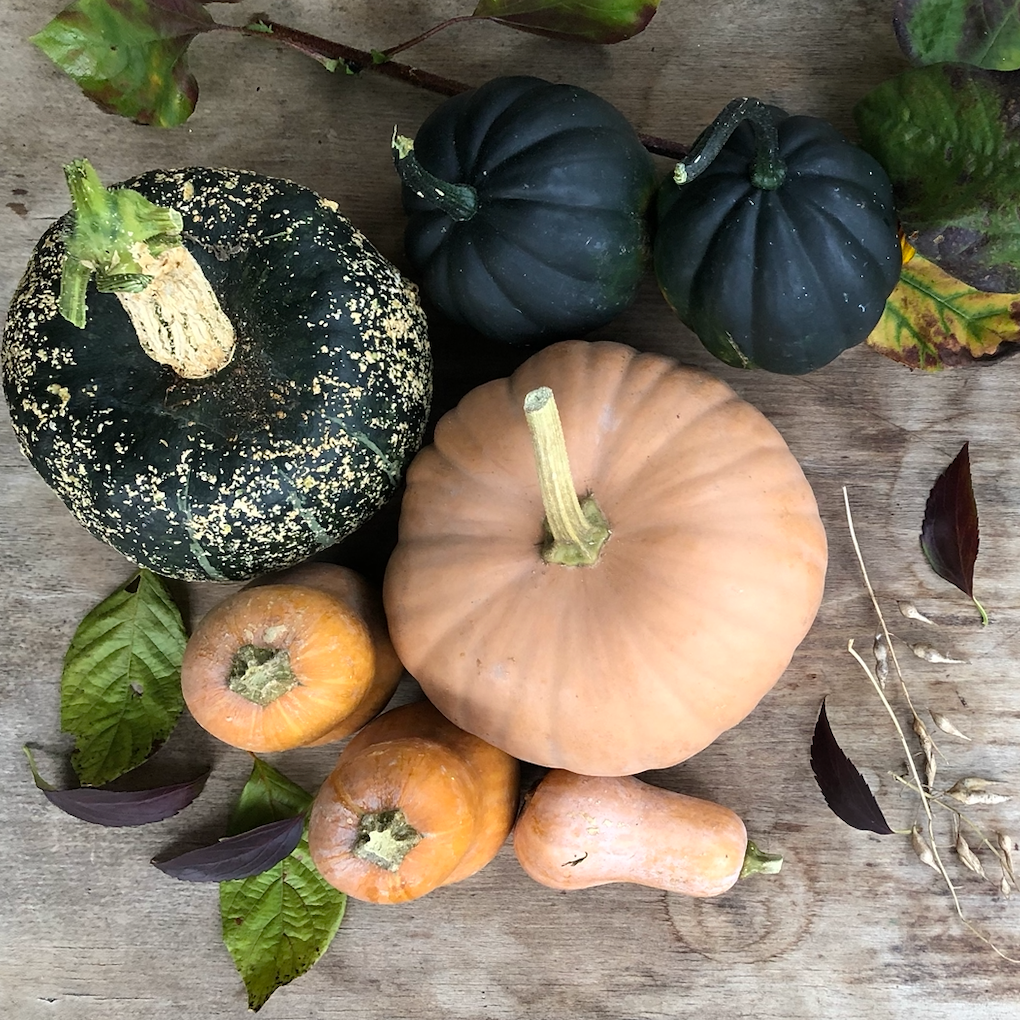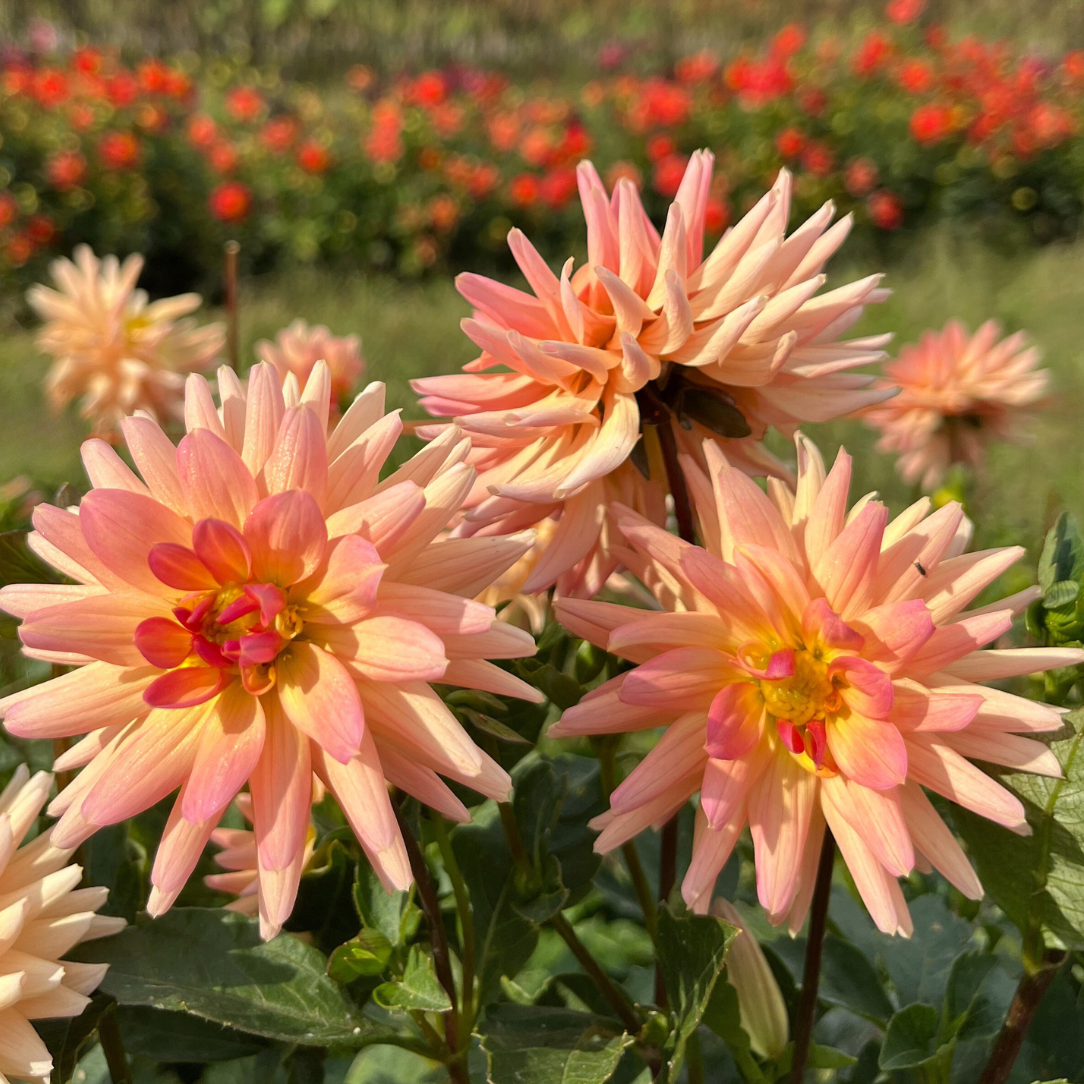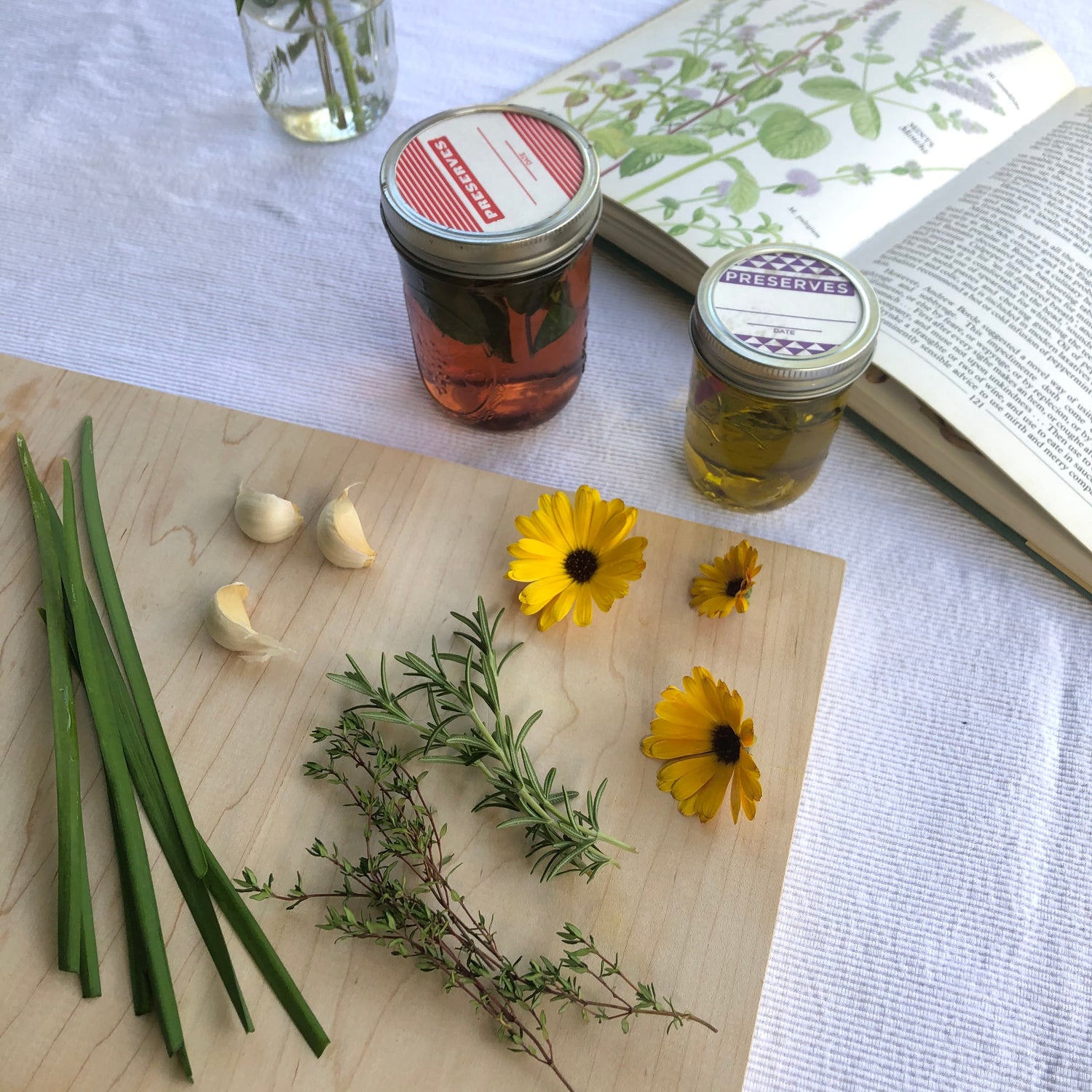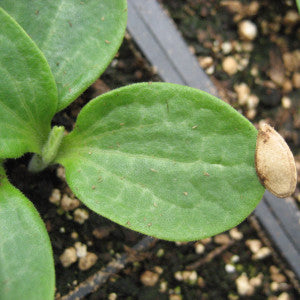 The Cucurbitaceae family occupies so many summer meal fantasies: juicy watermelons, sweet melons, crunchy cucumbers, versatile squash. As your last spring frost dates nears, get a jump start on Cucurbit production by sowing seeds indoors or in a greenhouse. Or, if you aren't in a hurry, get to know how to sow seed directly and plant your cuke, zuke, melon, and (later in the season) pumpkin seeds right in your garden bed.
The Cucurbitaceae family occupies so many summer meal fantasies: juicy watermelons, sweet melons, crunchy cucumbers, versatile squash. As your last spring frost dates nears, get a jump start on Cucurbit production by sowing seeds indoors or in a greenhouse. Or, if you aren't in a hurry, get to know how to sow seed directly and plant your cuke, zuke, melon, and (later in the season) pumpkin seeds right in your garden bed.
Our Best Seed Starting Tips for Cucurbits:
1. If starting indoors, start seeds 3-4 weeks before desired transplant date. Your transplant date should always be on or after your last frost date, up to 4-6 weeks later. Later plantings than that will produce fruit but will not have enough time to produce a good crop.
2. Sow 1 seed per cell, 1" deep. We like using cells that measure about 2x2x3" for summer and winter squash, and one a bit smaller for melons and cucumbers. The aim is to transplant seedlings right after they have healthy set of their first true leaves, so they are generally only in their pots for about 3-4 weeks. However, they grow so fast, allowing for a tad bid of extra space in their cells keeps them from getting stressed if you have to wait.
4. Watch out for rodents! If allowed, rodents will certainly dig up and eat all your seeds before they germinate, especially melon and squash seeds. If rodents have access to your seed starting space, cover the cells with screens until the seeds start to germinate.
5. Keep an eye out for cucumber beetles too. Cucumber beetles can be an issue in the greenhouse and the garden in the early spring. Keep seedlings high on a table and cover with very light row cover if you think you might have an issue.
Variety Recommendations
For small spaces and container gardens try:
Winter Squash: Cornell's Bush Delicata this true bush habit winter squash and takes up the least amount of space out of all our winter squash varieties. Expect 2-5 fruits from each plant.
Cucumber: Homemade Pickles Cucumber though this variety vines, they are short and very controllable. Can also be grown in containers.
Summer Squash: Cocozelle Zucchini is the most compact zucchini we offer. Plus, this variety has the best flavor.
For something new:
Winter Squash: Violina Rugosa needs space and time, but it's well worth it if you can spare it! Large warty fruits encase sweet, smooth flesh with outstanding flavor.
Cucumber: Yamato Sanjaku is a long, thin skinned cucumber, and a near and dear variety to the staff here. We recommend trellising for straight, easy to chop fruits.
Watermelon: Sweet Siberian Watermelon is our favorite watermelon for flavor and color! The bright orange glow flesh is cooling on a hot summer day.
Melon: Banana Melons are unlike any other melon! The looks don't take anything away from the flavor. It's not banana-like, but it is one of the best tasting melons out there.
Winter Squash: Waltham Butternut is one of those classics that just keeps on being great. High yielding with quality fruits and great flavor.
Cucumber: Silver Slicer white cucumbers are novel but do not disappoint. Sweet, pleasant flavor lacks bitterness, plus this variety was bred by Cornell University breeders to be Powdery Mildew Resistant.
Summer Squash: Dark Star Zucchini shines in less than ideal conditions. Classically bred for uniformity, yield and drought tolerance.


